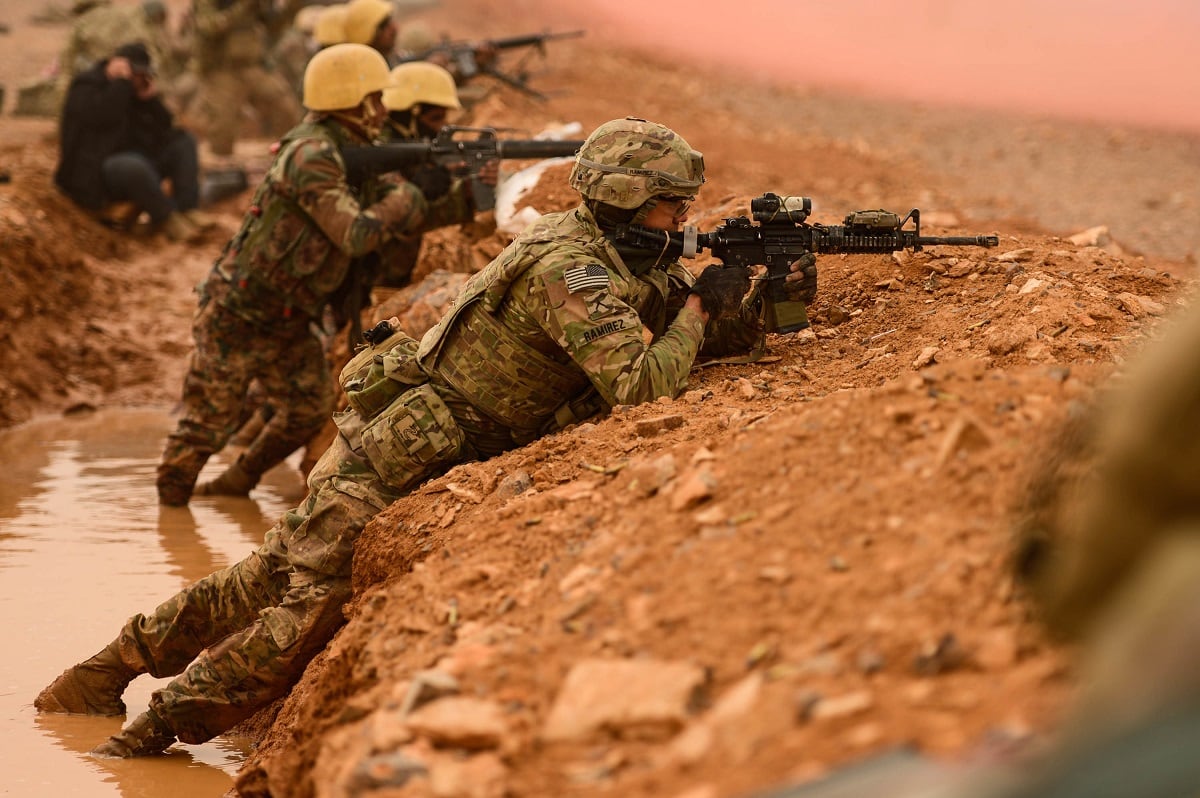WASHINGTON — The most valuable role for U.S. special operations forces within the National Defense Strategy is to build relationships with countries in hot spots around the globe to keep Russia and China at bay. But that effort can’t be at the expense of its counterterrorism mission, which remains the No. 1 priority of special forces, according to leadership within U.S. Special Operations Command.
SOCOM plans to issue a report to Congress on a comprehensive review of its roles and missions this month, according to Mark Mitchell, the principal deputy assistant secretary of defense for special operations and low-intensity conflict, who was speaking during a recent hearing with the House Intelligence and Emerging Threats and Capabilities Subcommittee.
One of the main priorities for SOCOM is to carry out counterterror missions, but the National Defense Strategy focuses on great power competition against near-peer adversaries Russia and China, so House lawmakers wanted to know how special forces fit in a strategy that focuses less on counterterrorism and more on powerful adversaries.
“We’ve been the tip of the spear on the [counterterror] fight,” SOCOM Commander Gen. Richard Clarke said during the hearing.
“However, moving forward, particularly in great power competition, our special operations forces are not necessarily going to be in that fight because the whole idea of the strategy is to avoid a kinetic” confrontation, he added.
Clarke said he’s examining SOCOM relationships with U.S. Cyber Command, U.S. Strategic Command and U.S. Transportation Command as well as the global combatant commanders to see “how we can best integrate our forces and provide support to those in other domains.”
“I think the special operations community is uniquely suited to build networks of partners and allies around the globe to put us in a position, first of all, to compete for that influence and legitimacy in peacetime,” Clarke added.
Special forces also have an important role to play within the military information support operations center in Tampa, Florida, which is aligned with the State Department’s Global Engagement Center, which “allows us to compete in the space ahead of time and make sure that we’re countering some of the vitriol that’s coming out of Russia at this time and the falsehoods,” Clarke said.
According to Clarke and Mitchell, it’s unlikely the reach of special forces around the globe will wane.
RELATED

“A [counterterror] deployment to Africa is also a part of that great power competition against the Russians and Chinese,” Clarke noted as an example. “We are trying to look at our employment of the SOF force from a holistic view to ensure that we’re maximizing the return on that investment to our counterterrorism mission and our great power competition.”
The relationships that U.S. special forces develop with other countries is also unique, Clarke noted. “A small team, a small element of Special Operations forces, can bring a significant impact working with foreign forces.”
“Remember,” Mitchell added, “Chinese and Russian threats are global, and that’s part of the reason why we’re in 80 countries.”
For example, Mitchell added, SOCOM received recent congressional approval to move forward with an important counterterror effort in the Philippines, but that is also a critical component of building influence within the country and “keeping Chinese at arm’s length.”
While the NDS is focused on great power competition, the strategy still recognizes the need to combat violent extremist organizations, which “is not going away, and we’ve got to balance that,” Mitchell said.
So some new concepts for employment of special forces will likely emerge, according to Mitchell. “We’re working with the services to ensure that we are integrated with their development efforts,” he added.
But there are a few tasks where, if given the chance, SOCOM would take off its plate, particularly to improve its deployment ratio with double the time spent at home compared to overseas. Clarke said special forces in Africa could be better optimized. “That’s not necessarily ‘take away the mission,’ but I see reduction internal to some of these missions,” he said.
Additionally, the mission to counter weapons of mass destruction is also an increasing burden on the force, Clarke said: “I think it’s a right-sizing in the mission internal to make sure we have the right force allocation against it.”
And SOCOM is looking at how the Army’s security force assistance brigades might be better suited for certain security force assistance-type missions.
“SOF should be in places where it’s a light footprint, it’s politically sensitive, with a small team, that is training other special operations forces primarily,” Clarke said.
Jen Judson is an award-winning journalist covering land warfare for Defense News. She has also worked for Politico and Inside Defense. She holds a Master of Science degree in journalism from Boston University and a Bachelor of Arts degree from Kenyon College.







